2024
Small Scale PPPs in Water and Waste Water Sector Session
June 21st, Online
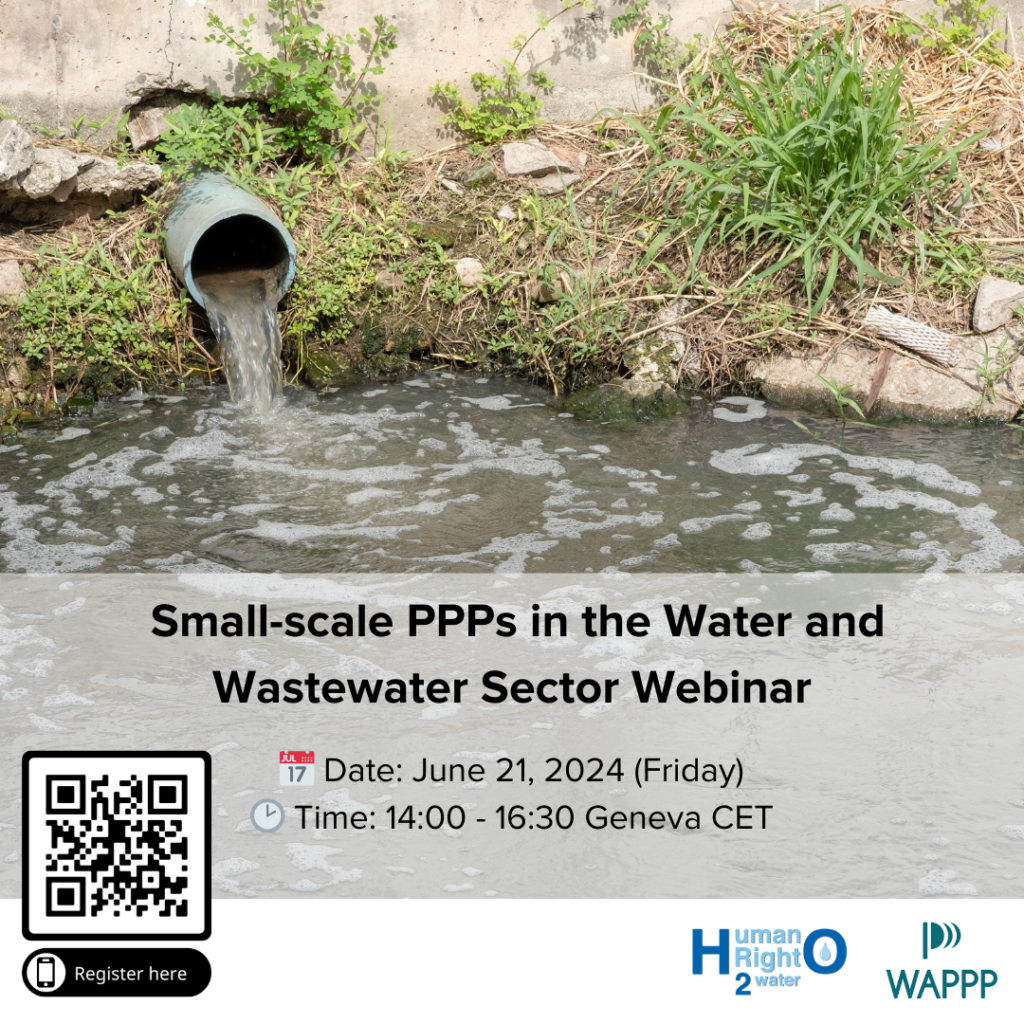
The World Association of PPP Units and Professionals (WAPPP), in collaboration with the United Nations Economic Commission for Europe (UNECE), is conducting a series of insightful preparatory sessions focused on small-scale Public-Private Partnerships (PPPs). These sessions aim to generate comprehensive guidelines on small-scale PPPs, set to be published later this year. June 21st, WAPPP hosted it’s 11th Session on Small Scale PPPs in Water and Waste Water Sector moderated by Amanda Loeffen (HR2W).
This an online event hosted by WAPPP and UNECE, watch the full session on this page.
Human Right 2 Water: Annual General Meeting (AGM) 2024
June 12th, Online

On June 12, 2024, Human Right 2 Water held its fourth Annual General Meeting (AGM) , gathering members, partners, and stakeholders to review the past year’s accomplishments, discuss the strategy for 2024-2026, and set the stage for future initiatives. The meeting also held board elections and presentations from our team, members and our Expert Committee.
This an online event. Learn more on how to become a member on this page to attend future AGMs.
Learn more about our elected board members on this page.
Achieving a “Net Zero” equivalent for water and the role of partnerships
May 22nd, Bali, Indonesia

The session at the World Water Forum on May 22nd, co-hosted by HR2W, ADB, CAF, GWP, and Veolia, focused on creating a “Net Zero” for water. The workshop brought together inspirational thinkers and leading examples of projects that have successfully navigated financial barriers to water investment. At the session, key speakers presented successful case studies on overcoming financial barriers to water investment. These projects utilised blended finance and public-private partnerships, emphasising the benefits for broader Sustainable Development Goals (SDGs). The workshop aimed to motivate a wider audience to view water investment as crucial and profitable.
Extreme water events and indigenous peoples workshop
May 22nd, Bali, Indonesia
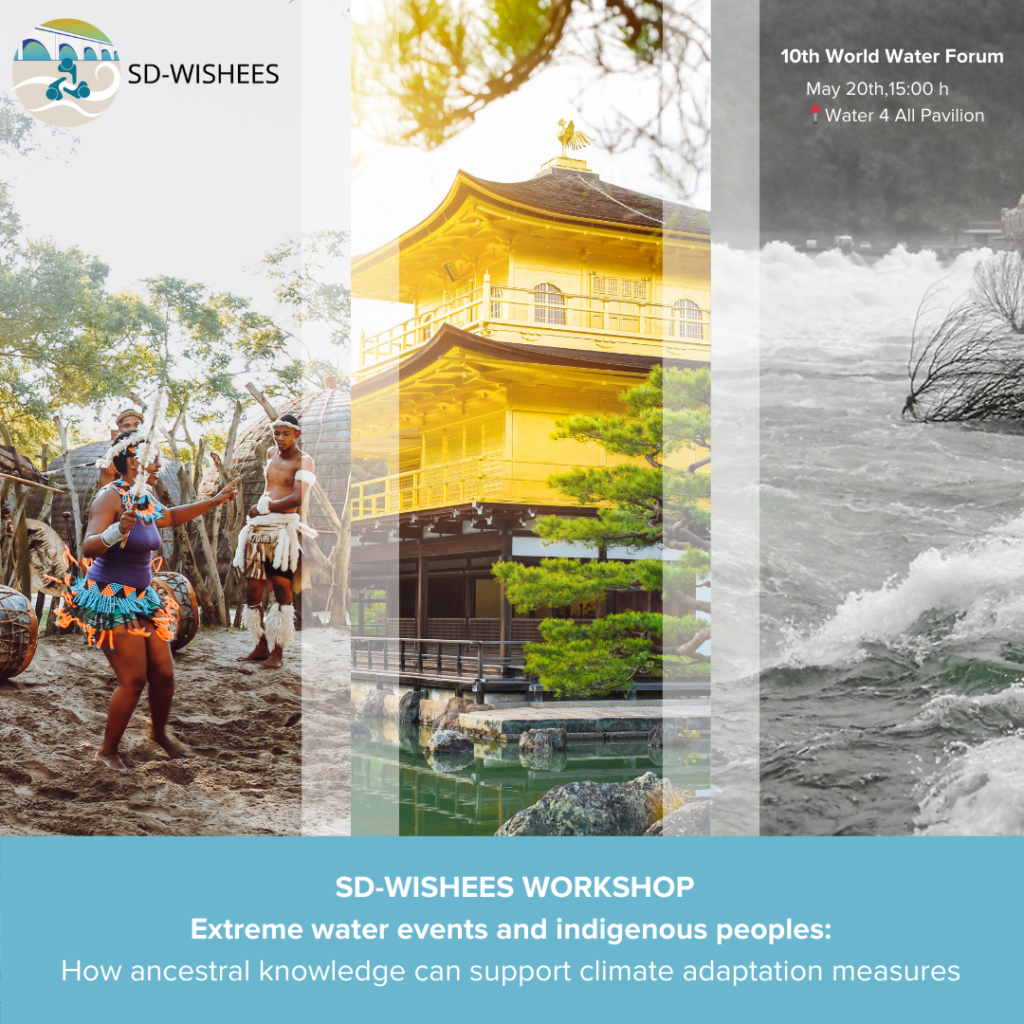
May 20th, SD-WISHEES hosted a workshop on “Extreme water events and indigenous peoples: how ancestral knowledge can support climate adaptation measures” at the 10th World Water Forum in Bali. SD-WISHEES is a consortium of researchers, water governance and cultural heritage experts that is collaborating with a Research Funding Organisations in Europe and beyond to understand some of the innovation pathways for climate adaptation, and the barriers to entry for new investment in this area. This 90 -minute event is designed to bring together experts from indigenous communities and areas affected by flood or drought erosion, to give the floor to this relatively new Nexus for Water-Climate and Cultural Heritage.
2023
WAPPP Abu Dhabi PPP Forum
17th-19th October, Abu Dhabi, United Arab Emirates
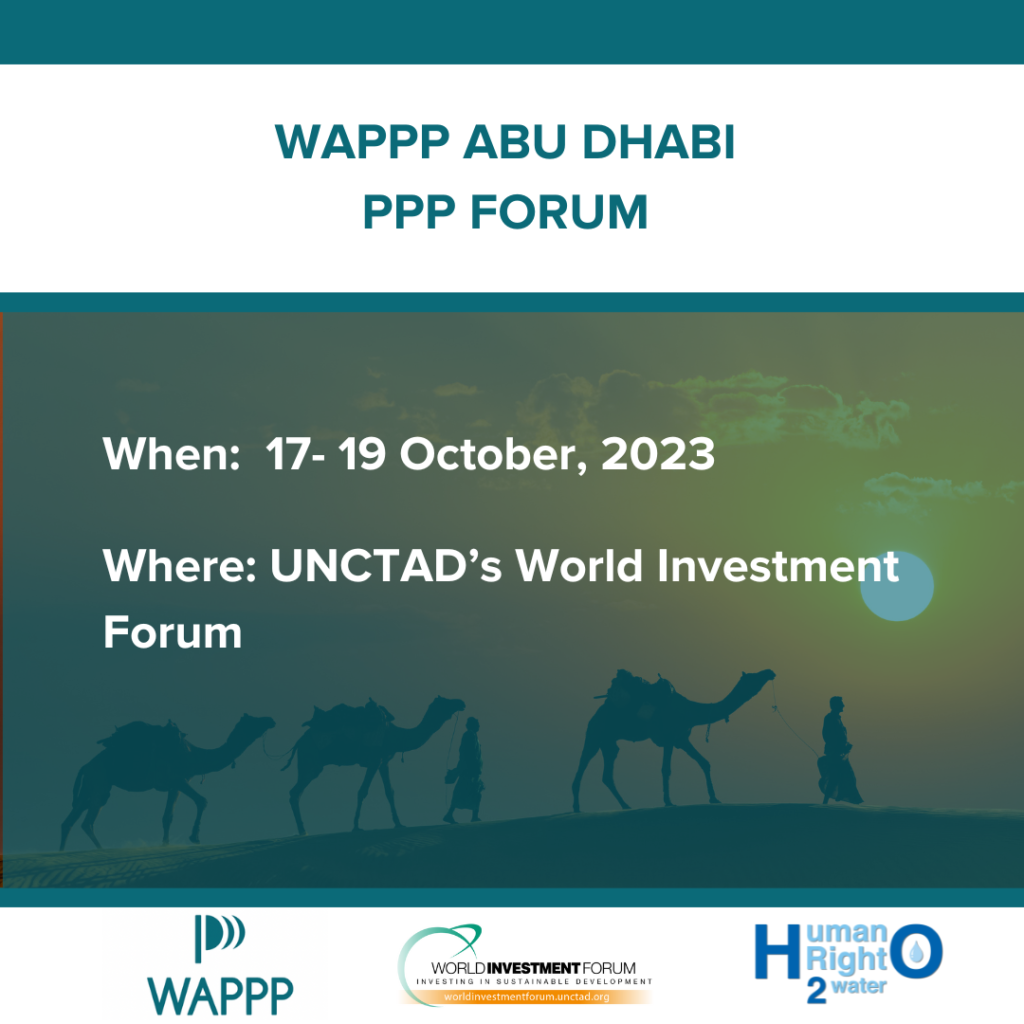
October 17th to 19th, 2023 HR2W will be participating on the WAPPP Abu Dhabi Public-Private Partnership Forum that is happening at UNCTAD’s World Investment Forum. This event will host international experts from within the WAPPP global network of PPP practitioners, United Nations organisations, national governments, international development financial institutions, and many other stakeholders that are essential actors in the PPP-environment alliance.
This is an in-person event hosted by the World Investment Forum and WAPPP, for more information on the event see this page.
AGUASAN Workshop
9th-13th October, Martigny, Switzerland
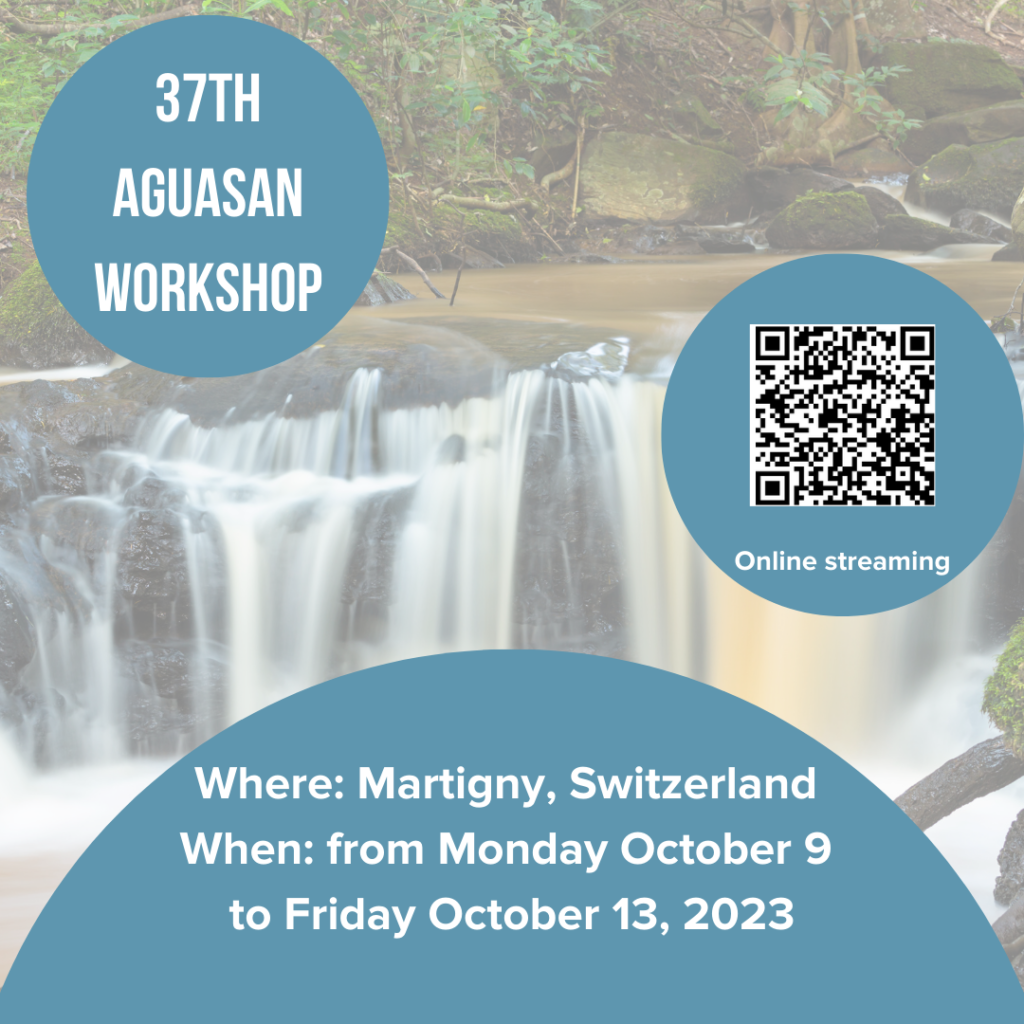
HR2W is co-hosting the 37th AGUASAN Workshop from Monday October 9 to Friday October 13, 2023 at the Martigny Boutique-Hôtel (Valais). This workshop is looking to identify challenges, opportunities and solutions related to digitalisation and data management in the water sector. It will help participants who are looking for ways to do professional networking, learn from experiences, broaden the evidence base, and develop ideas, strategies actionable solutions and recommendations of practical use.
This workshop is a follow up to the e-learning journey held early this year through webinars. If you missed the content of our webinars, you can find information available here: Citizen Science and Digitalisation for Water Quality Webinar and Data for Water-Related Disaster Risk Reduction Webinar.
WWQA Social Engagement Workshop
21st September, Nairobi, Kenya
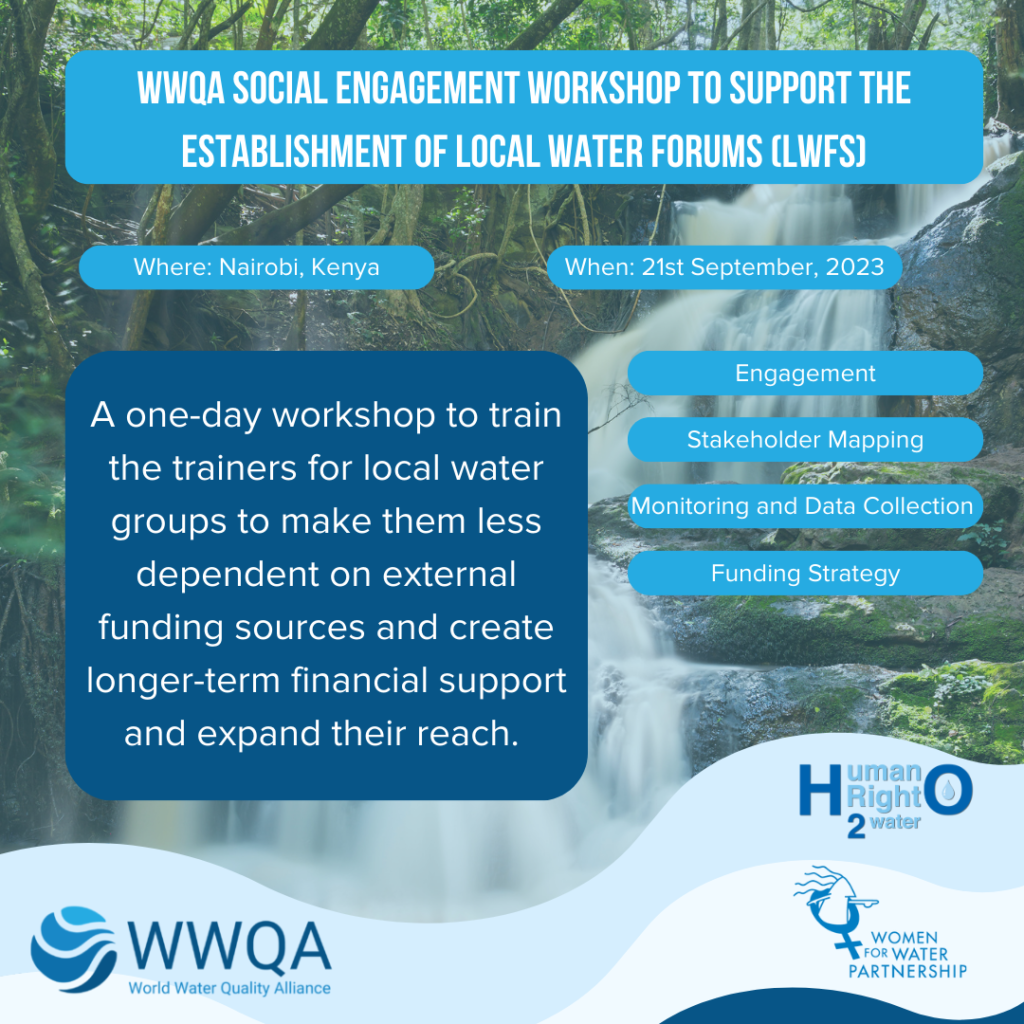
This year we are co-hosting a WWQA Workshop in Nairobi, Kenya. The key objective of this one-day workshop is train trainers for local water groups to make them less dependent on external funding sources and create longer-term financial support and expand their reach.
It is a four-module training programme that will appeal to existing and new Local Water Forums that need support.It will cover the creation of a communication plan, a structured approach to identifying stakeholders that could support the LWF, a review of the techniques available for assessing water quality, and how to access expertise and support, and the development of a local funding strategy to target the local community and authorities.
World Water Week
20-24th August, 2023
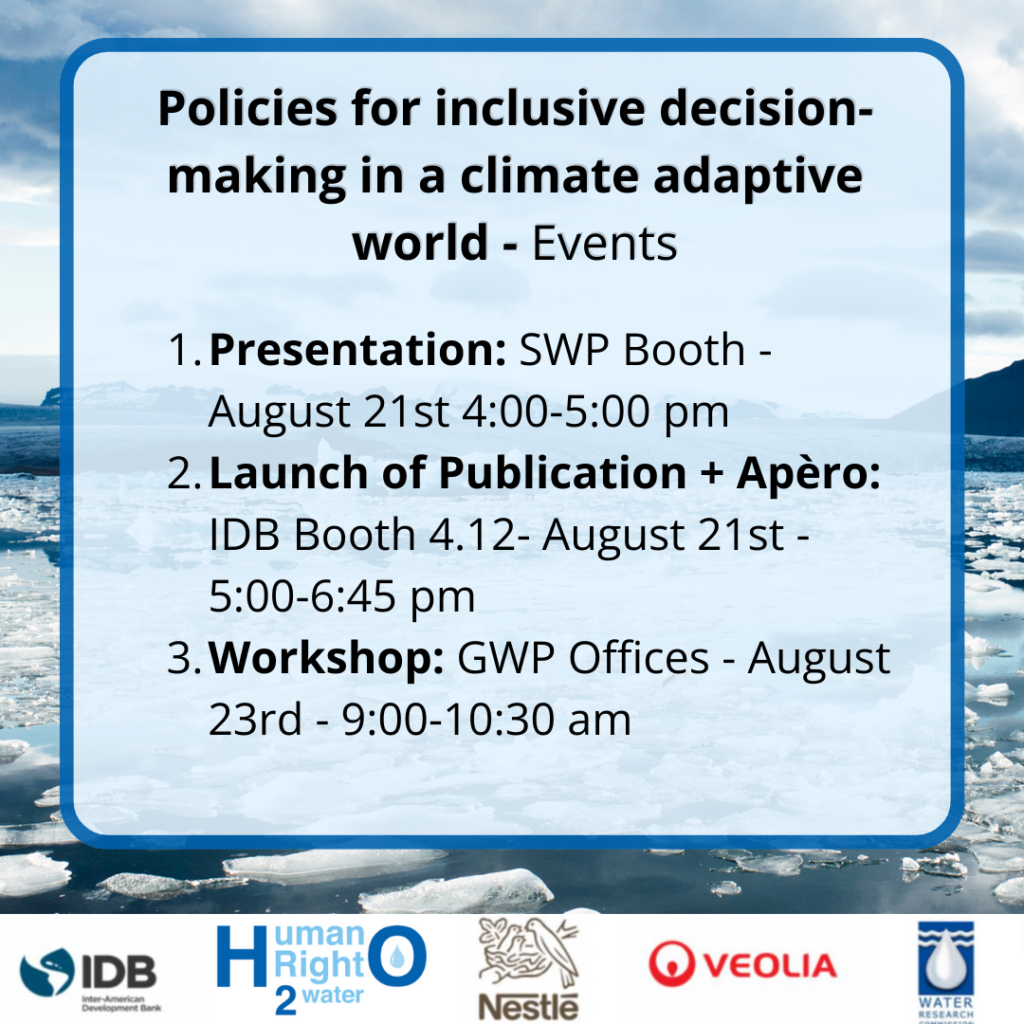
This year we are participating in the 2023 World Water Week in Stockholm, Sweden. We will be hosting and participating in several events including: three events around our newest publication “Policies for inclusive decision-making in a climate adaptive world”, three SIWI seminars around the topic ‘Seeds of Change: Innovative Solutions for a Water-Wise World’ and others. Read More Here
Our publication is a collaborative review of water resources management legal good practices in 16 countries. This paper attempts to examine how countries can legislatively safeguard essential elements of the human right to water in worsening climate conditions, and what this means for service providers and businesses.
Read our new publication: here and our new policy brief: here
Data for Water Disaster Risk Reduction Webinar
July 13th, 2023
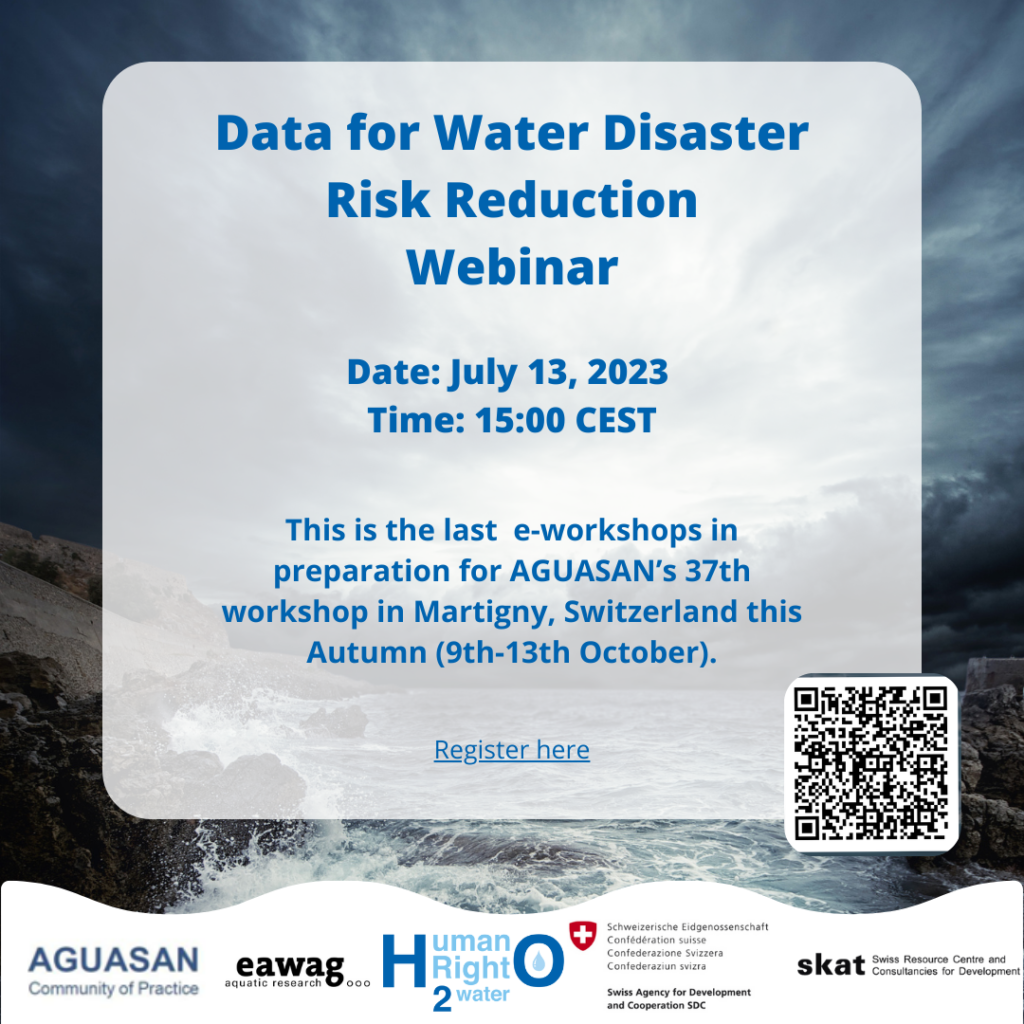
This year we are participating in the 2023 AGUASAN Workshop in Martigny, Switzerland that will take place on October 13th. As part of this learning journey we are hosting a second webinar through zoom July 13th at 3 pm CEST on “Data for Water Disaster Risk Reduction”.
This webinar aims to explore the role of data to reduce risks and improve water management to adjust to current or expected climate changes and its effects. The event will feature presentations from our partner’s at GEO, WMO HydroHub, ISRC, and UNDRR and a second part in which the participants can interact and ask questions to the speakers.
To participate in this webinar register here.
Learn how to participate on the AGUASAN Workshop: here
Citizen Science and Digitalisation for Water Quality Monitoring Webinar
June 29th, 2023
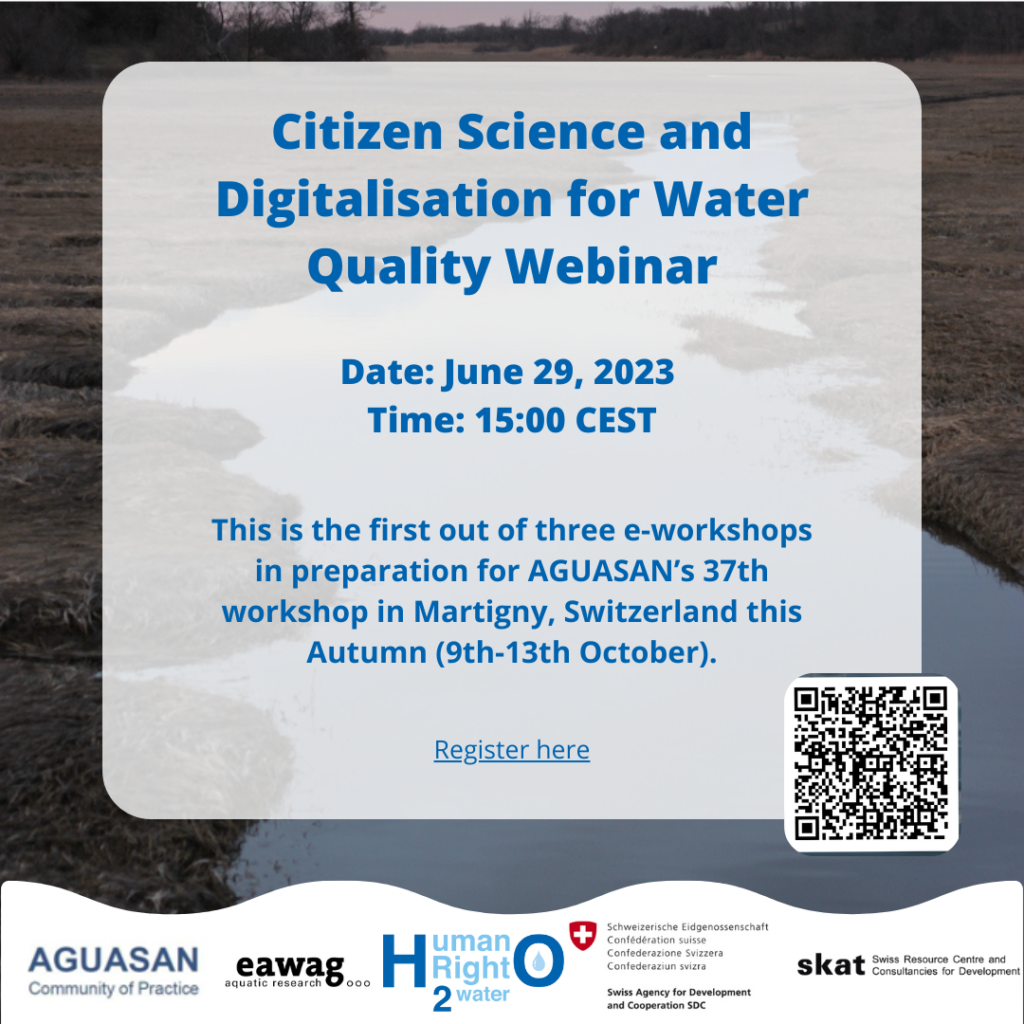
This year we are participating in the 2023 AGUASAN Workshop in Martigny, Switzerland that will take place on October 13th. As part of this learning journey we are hosting a webinar through zoom June 29th at 3 pm CEST on “Citizen Science and Digitalisation for Water Quality”.
This webinar aims to explore the role of diverse citizens in monitoring and improving water quality. The event will feature presentations from our partner’s at WWQA, GroundTruth, WRC, Crowd Water App, MiniSass, and Earth Watch.
To participate in this webinar register here.
This is the first out of three e-workshops, more information on the second webinar we are hosting coming soon.
Learn how to participate on the AGUASAN Workshop: here
Masterclass
3rd – 31st of May 2023

In partnership with the International Water Resources Association (IWRA) and the Water Research Comission (WRC) we are presenting a 5-module virtual masterclass event on Institutional Responsibility to support SDG 6 and the rights to water and sanitation. These modules consist of a one-hour public lecture and a 90 minute member workshop that will be offered through the five Wednesdays in May, starting on the 3rd May.
The five topics for the masterclass segments are: 1. investment in the HRBA for sustainable water solutions, 2. human rights to WASH, SD6 and corporate due diligence for sustainability, 3. situation analysis from a HRBA, 4. stakeholder engagement and CSR, and 5. human rights indicators as a tool for realising SDG6.
The masterclass full certificate is offered to members only. See how to become a member here.
If you are a member and you wish to participate on this masterclass register here.
UN Water Conference
22nd – 26th of March 2023
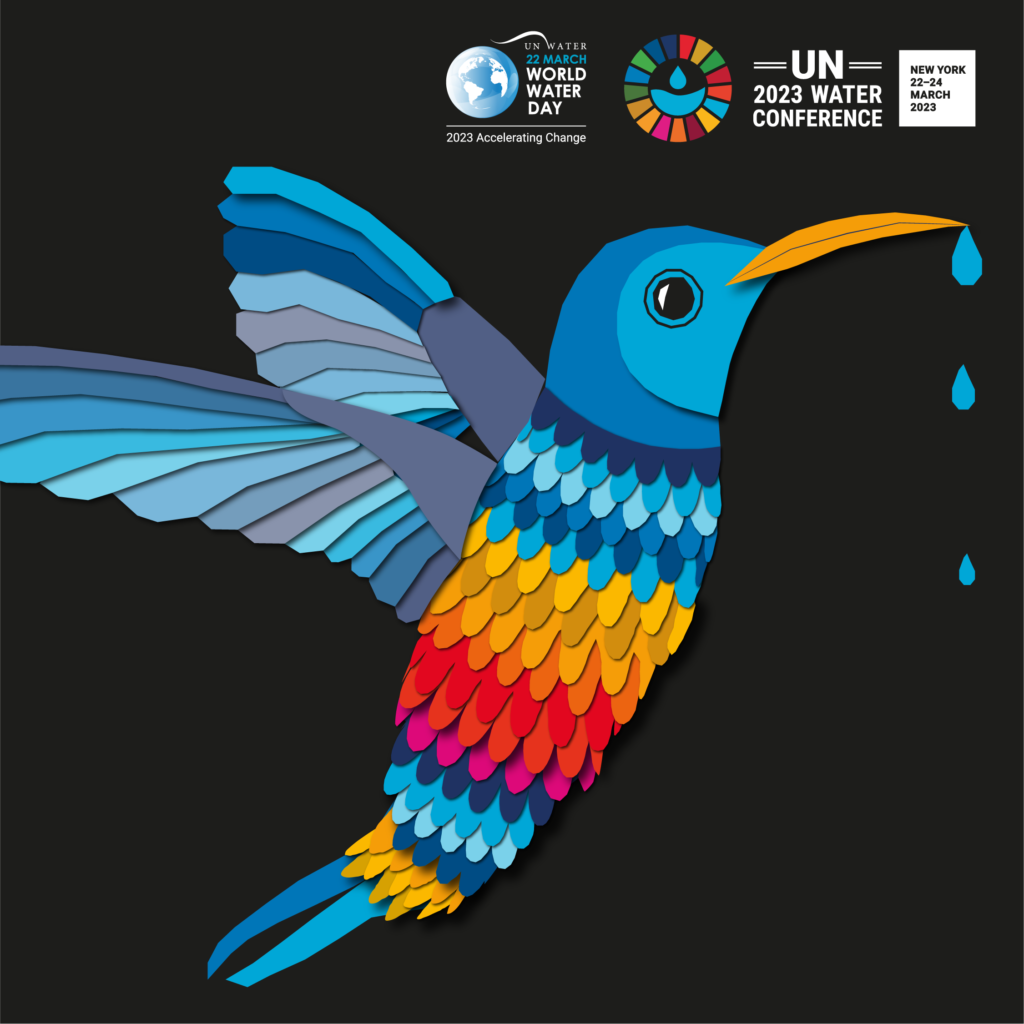
Human Right 2 Water is co-organizing/involved in several side-events at the 2023 UN Water Conference. The first event will be on the 22nd of March and it will focus on Integrated Water and Climate Solutions. The second event, Scaling Up of Right to Children on WASH in Schools, will be held the 23rd of March. HR2W was also asked to participate in two other events Mainstreaming Ecological Restoration in Freshwater and the Financing Water and Sanitation Infrastructure at the Local and Regional Governments Day on Water.
These events will provide an opportunity to learn from experts from the water sector from all across the different regions…
Read more about the Scaling Up of Right to Children on WASH in Schools side-event here
Strategic Engagement: Promoting Transboundary Water RDI Cooperation in SADC
16th of March
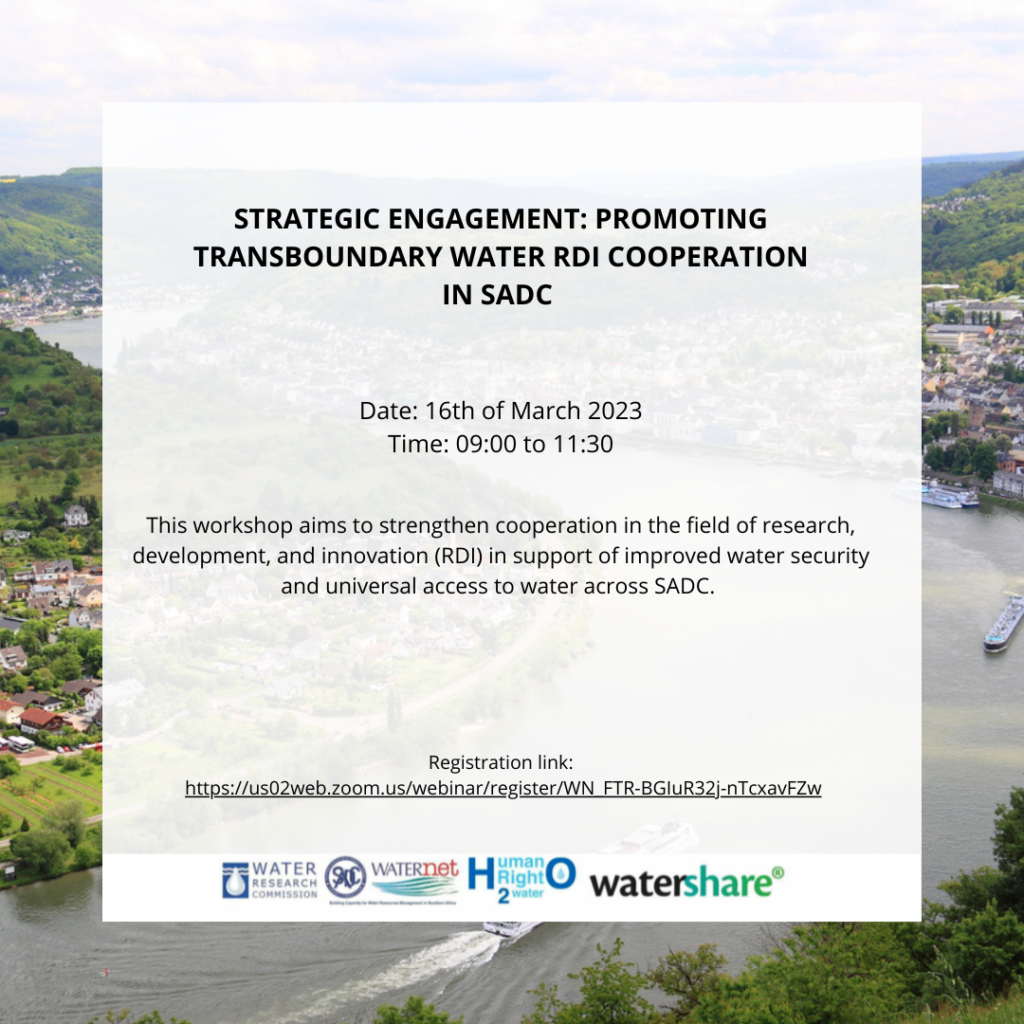
This strategic workshop aims to strengthen cooperation in the field of research, development, and innovation (RDI) in support of improved water security and universal access to water across SADC. The workshop aims to bring together the SADC countries and river basin organization (RBO) in SADC to promote RDI within and amongst themselves.
This event will have Governments of SADC member states, RBOS, Transboundary water organizations, Policy Makers, Innovators, Academia and Investors and funders and Research funding institutions working together to identify and sharing of common needs and challenges and come up will tools and solutions to address these.
2022
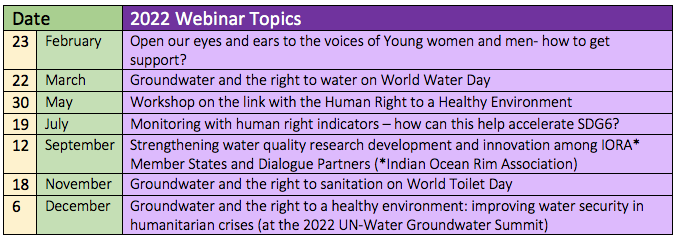
Groundwater and the right to a healthy environment: improving water security in humanitarian crises
6th December 2022
UN Water Groundwater Summit Side Event
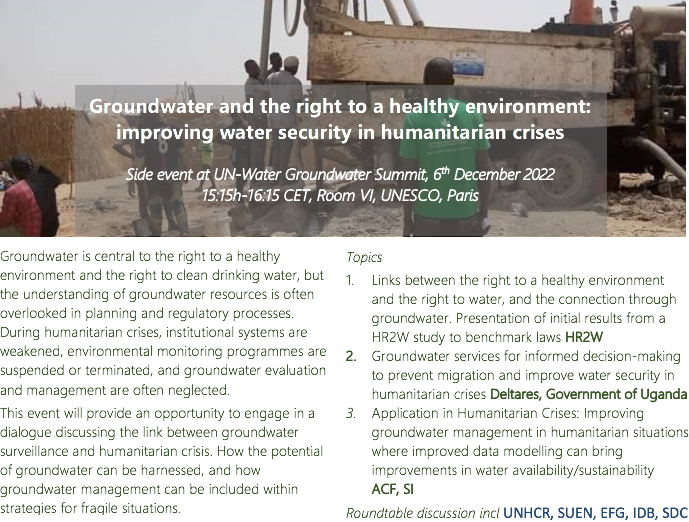
Groundwater is central to the right to a healthy environment and the right to clean drinking water, but the understanding of groundwater resources is often overlooked in planning and regulatory processes. During humanitarian crises, institutional systems are weakened, environmental monitoring programmes are suspended or terminated, and groundwater evaluation and management are often neglected.
This event will provide an opportunity to engage in a dialogue discussing the link between groundwater surveillance and humanitarian crisis…
Experts: Amanda Loeffen from Human Right 2 Water (HR2W), Olcay Unver from the Arizona State University, Dr. Callist Tindimugaya from the Government of Uganda, Marta Faneca Sanchez from Deltares, Tom Heath from Action contre la Faim, Baptiste Lecuyot from Solidarités International, Simon Odong from the United Nations High Commissioner for Refugees, Tugba Evrin Maden from the Turkish Water Institute, Pavlos Tyrologou from the European Federation of Geologists, Marc-André Bünzli from the Swiss Development Cooperation (SDC), and the Inter-American Development Bank (IDB).
Promoting Transboundary Water Research Development and Innovation Cooperation in SADC Region (Southern Africa Development Community)
13th October 2022
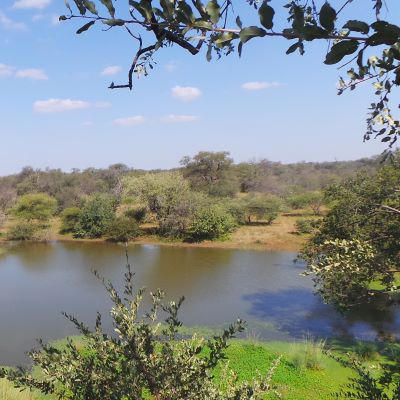
Zimbabwe, Mozambique
Transboundary water refers to water resources such as aquifers, lakes and river basins being shared by two or more countries. An estimated 70% of the SADC rural population relies on groundwater, with 30 significant aquifers located in transboundary positions.
Transboundary water cooperation instruments, such as the SADC Revised Protocol on Shared Watercourses are an essential route to cooperation, and River Basin Organisations (RBOs) are a leading voice for basin-wide water issues in shared river basins. SADC countries,transboundary water resource organisations and interested parties are working together to promote the provision of quality water to the more than 250 million SADC citizens, with cooperation across boundaries on water-related research, development, and innovation (RDI).
This strategic workshop aims to strengthen cooperation in RDI for improved water security and universal access to water across the SADC Region. The workshop brings together the SADC countries and its RBOs in order to promote RDI within and amongst themselves.
Target Audience: Governments of SADC member states, RBOS, Transboundary water organisations, Policy Makers, Innovators, Academia and Investors and funders and Research funding institutions
Experts: South African Water Research Commission (WRC) in partnership with Human Right 2 Water (HR2W) and WaterShare, African Networks of RIver Basin Organisations (ANBO) and the South African Human Rights Commission (SAHRC).
Strengthening Water Quality Research, Development and Innovation among IORA Members States
12th September 2022
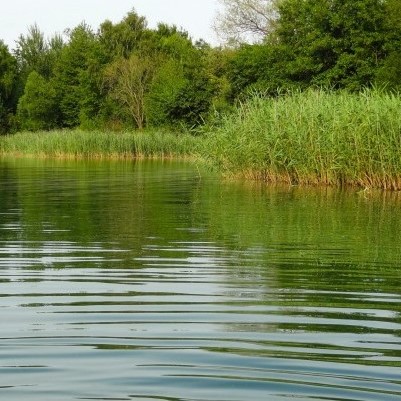
Water Quality refers to the chemical, physical and biological characteristics of water, based on the intended standard of its intended use such as drinking, swimming, washing, etc. The water quality of a system or particular area can be determined by the local geology, ecosystem as well as the interaction such as washing, sewage dispersion, overuse, industrial pollution, drinking, etc
Water quality and its’ access is a key issue for all countries in the world, including those in the Indian Ocean Rim Association (IORA) inter-governmental organisation. The IORA was formed in 1997, to foster regional cooperation. To date, the IORA has a total of 23 member states and 10 dialogue partners. Like many countries, the IORA member states also have water quality as one of their key focus areas, concerning RDI in the areas of emerging contaminants, water provision, monitoring, and Water Sanitation and Health (WASH).
The workshop aims to strengthen cooperation amongst the IORA member states to improve water quality RDI and subsequent provision to their respective inhabitants. The workshop will form part of a series of workshops, with the aims of (1) focusing on ways to improve cooperation and sharing the current RDI work done by the IORA countries on water quality and identifying challenges faced by these countries concerning water quality, and (2) focusing on potential interventions to improve quality RDI amongst these countries.
Experts: South African Water Research Commission (WRC) and the IORA Regional Centre for Science Technology Transfer (RCSTT) and in partnership with Human Right 2 Water (HR2W), South African Local Government Association (SALGA) and South African Human Rights Commission (SAHRC).
Monitoring with Human Right Indicators – how can this help to accelerate SDG6?
19th July 2022
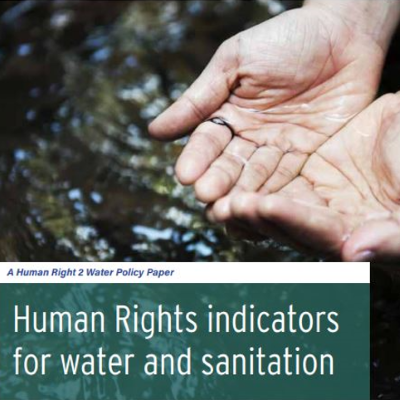
The Human Rights-Based Approach attaches importance not only to programme outcomes, but also to the process by which those outcomes are achieved. Because of this, the development of human rights-based indicators plays a key role, because it allows for the evaluation of human rights compliance throughout the whole programme, throughout the evaluation of both processes and outcomes.
This webinar will seek to explain the importance of monitoring human rights indicators using examples from two countries (Kenya and Mexico), a keynote presentation from the Spanish Development Agency, and an introduction to human right s indicators from the Office of the High Commissioner for Human RIghts.
Together with the Kenya National Commission on Human Rights, and the support of the Swiss Development Corporation, the Inter-American Development Bank and IWRA, the development of practical human rights indicators has been captured in this short policy document. The online discussion proposed in this webinar, relates to the learnings and challenges of this approach, together with the positive benefits gained from the ability to monitor progressive realisation at the sub-national level.
Experts: from AECID, OHCHR, KNCHR, Kenya RAPID+, IWRA, HR2W
Read more about the event and the speakers here.
Groundwater and the right to water on World Water Day
22nd March 2022
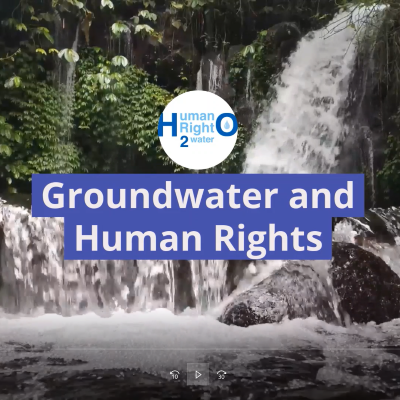
Read More here and watch video
For this 2022 World Water Day, HR2W hosted a discussion on groundwater and human rights to fit with the World Water Development Report annual theme. In order to bring attention to the importance of this matter, we have an introductory presentation from David R.Boyd, the Special Rapporteur on the Human Right to a Healthy Environment, followed by a short discussion with experts on groundwater and human rights to water and the environment.
Experts: David R. Boyd (Special Rapporteur), Jenny Gronwall (SIWI), Kirstin Danert (Ask for Water), Amanda Loeffen (HR2W moderator)
Open eyes and ears to the voices of young women and men – how can we support them?
23rd February 2022, 15-16:30h
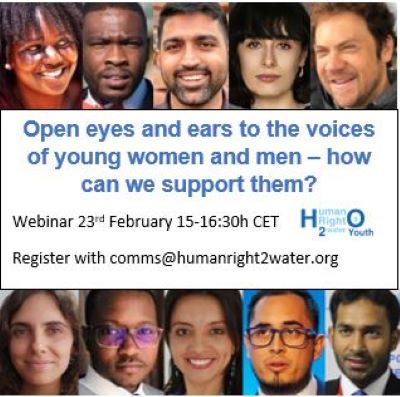
Young leaders of the HR2W Youth Platform, Nada Bessassi and Isabella Cubillo will interview young water network leaders working in the water and sanitation sector. They will explore the ways in which the involvement of young people in water and sanitation projects has been beneficial in promoting and protecting human rights. It will highlight the role in decision-making processes and highlight their innovative ideas.
Complementing these presentations, our expert advisors will suggest helpful ways for these youth networks to attract funding and support.
Experts: Anna Kristina Kanathigoda (GIZ), Mariet Verhoef-Cohen (WfWP),
Gates Foundation, Inter-American Development Bank
Youth Network Leaders (from HR2W Youth Platform):
Ioana Dobrescu (Wetskills);
Kenneth Alfaro (Proyectos de Prevención de la Contaminación del Agua en Nicoya Península Waterkeeper, Costa Rica);
Belen Vallejo, Sustainability Expert in Water & Natural Resources, Switzerland
Emmanuel Uguru, Youth Focal Point at Africa Ministers’ Council on Water (AMCOW)
International Cooperation and best practice on citizen science engagement in water and sanitation programmes
9th December 2021, 08:00-09:30h CET
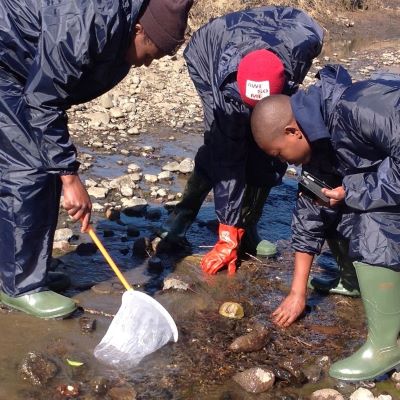
Citizen Science is described as the practice of public participation and collaboration in scientific research to increase scientific knowledge. It can be used to generate new ideas, leadership and project innovation.
Through an interactive workshop with practitioners that are developing exciting new approaches to citizen engagement, and collection of data, particularly in support of the sustainable development goals, we hope to encourage constructive thinking around this approach.
The workshop invites keynote presentations from expert such as Prof. Vishwas Satgar, WITS University, and Michelle Hiestermann from WRC to provide some background on the potential for citizen science. The following roundtable is designed to provide expertise and discussion from a range of speakers from UNICEF, The institute of Water and Sanitation Zimbabwe, University of Exeter Centre for Water Systems, The Bucharest Business Development Group (experiences in the Danube), The South African Commission on Human Rights, and the Department of Water and Sanitation in South Africa.
Using the Human Rights Base Approach to provide water for the people that are being left behind
29th November 2021, 09:30-11:00 CET – Registration here

Water service delivery is challenging in developing countries such as South Africa, Kenya, Pakistan, and Costa Rica. Despite adopting the human right to water in the constitution, there are often water shortages, disruptions, and lack of access to quality water.
This webinar aims to share practices using the human rights-based approach to improve water service delivery for marginalised and vulnerable people. The session will highlight practical ideas that incorporate a Human rights approach, such that the audience can learn from these experiences.
We invite country coordinators from HR2W to share their stories with our co-convenors, the Water Research Commission in South Africa and Watershare. We invite you to join our event online, to listen to their stories about how the HRBA can encourage participation of communities and to find sustainable solutions, despite a severe lack of resources, and impoverished regions.
COP26: Actions to increase resilience to climate disasters based on human rights
8th November 2021, 0800h-09:00h GMT – Watch recording from WMO Science Pavilion here.
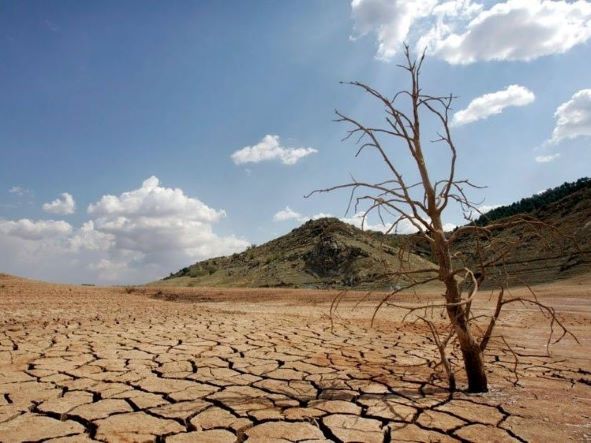
How do we increase resilience to climate events, giving priority to the needs of vulnerable people, and their access to clean and safe water, hygiene and toilets?
Resilience to climate disasters can be supported by strengthening the policies that are described by the human rights to water and sanitation. The HR2W Expert Committee, chaired by Michel Jarraud, has developed a Declaration based on a study in 25 countries, to encourage governments to protect, respect and fulfil these rights, even in an emergency. This is supported by the President of HR2W, Dhesigen Naidoo, Climate Commissioner for South Africa.
The Special Rapporteur on Human Rights and the Environment (David Boyd) meets top experts in climate change, water and human rights to discuss government preparedness to protect rights to water and maintenance of essential water services after climate events, especially for marginalised people.
Experts from the World Meteorological Organisation (Johannes Cullmann), The Green Climate Fund (Ania Grobicki), the Organisation of American States (Andres Sanchez), The United Nations Framework Commission on Climate Change (Rojina Manandhar), and The United Nations Economic and Social Commission for Western Asia (Dr Tarek Sadek) share the work that they are each doing to support the principles of the Declaration.
Business and Human Rights to Water and Sanitation
22nd September 2021, 1300h-14;30h CET – Watch the Webinar
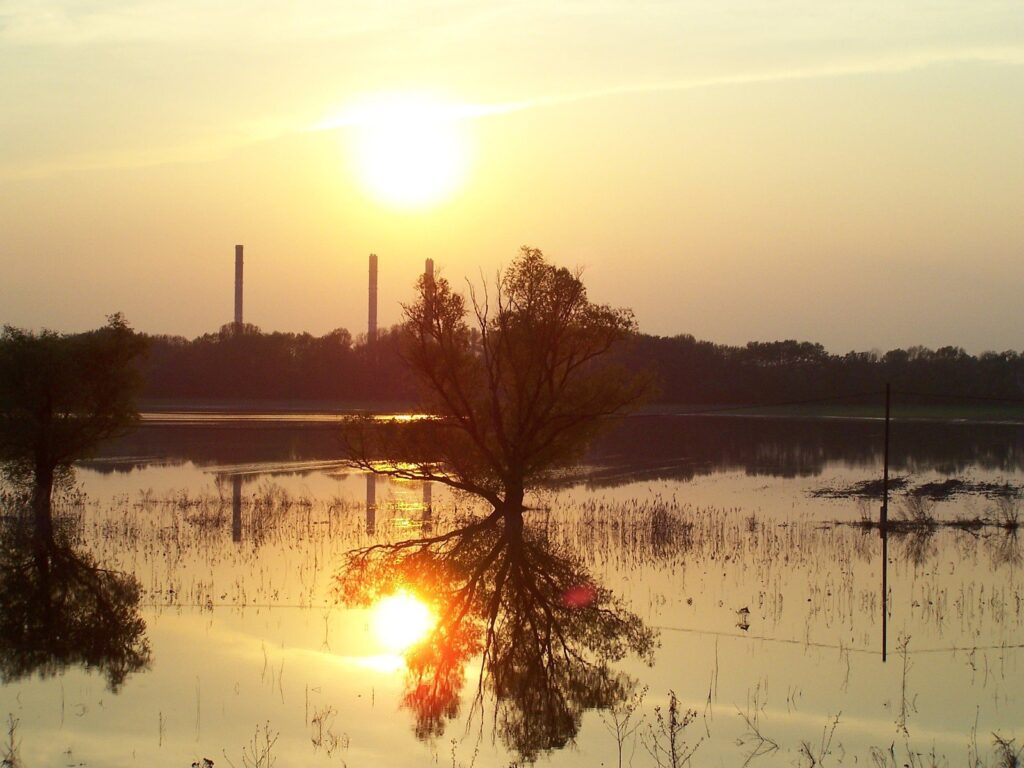
Experts: Pedro Arrojo-Ajuda (Special Rapporteur), Cristina Alejandro (Balibago Waterworks), Srija Santosh (Eram Scientific Solutions), Farhana Rashid (Bhumijo), Prakash Amatya (Aerosan), Neil Dhot (AquaFed), Alex Knezovich (Toilet Board Coalition), Amanda Loeffen (CEO, Human Right 2 Water), and Gabriella Casanova (Senior Legal Officer, HR2W).
Inclusion of human rights to water and sanitation in business processes and standards is a necessary standard for service providers. Businesses have a strong duty to respect and protect people’s human rights. It is recognised that there is a balance between provision of safely managed services (and fulfilment of human rights), environmental protection and providing sustainable long-term solutions. This webinar brings together practical tools, good practices, and expert interlocuters to provide guidance for businesses on how to respect human rights to water and sanitation along with improved standards.
Climate and Health Resilience
14th July 2021, 14h00h-16h00h CET- Watch the Webinar
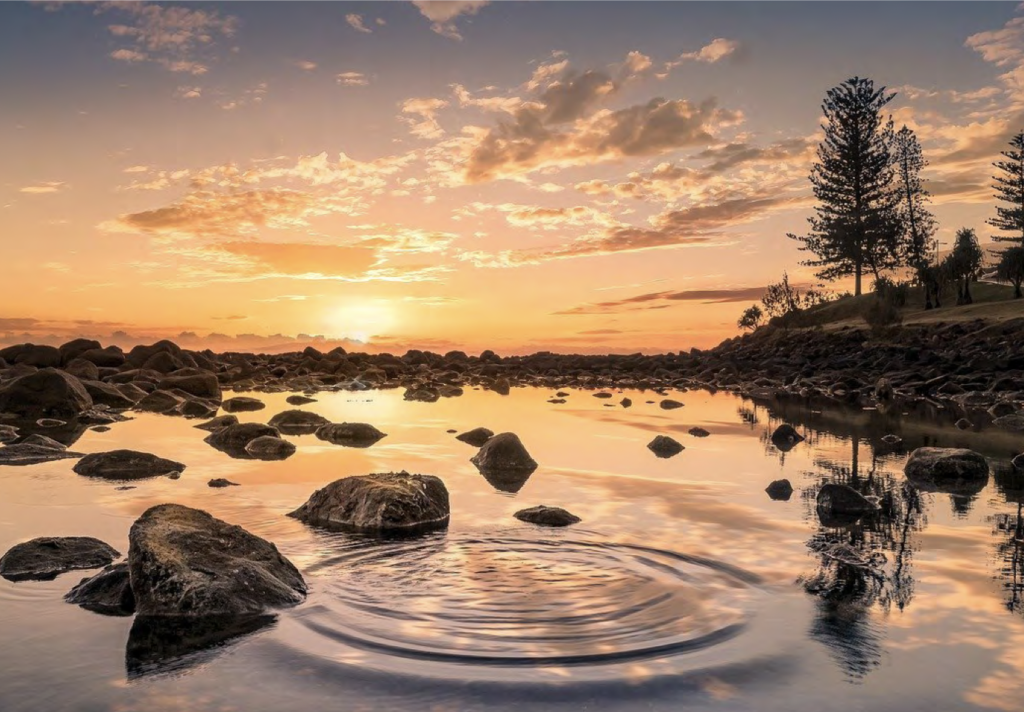
Experts: Michel Jarraud (WMO), Pedro Arrojo-Agudo (Special Rapporteur), Dhesigen Naidoo (Water Research Commission), Professor Sharmila Murthy (Suffolk University Law School), Dr Ania Grobicki (Green Climate Fund), Professor Saleemul Huq (Independent University Bangladesh), Johannes Cullmann (World Meteorological Organization ), Carol Chouchani Cherfane, (United Nations Economic and Social Commission for Western Asia), Rojina Manandhar (UN Framework Convention on Climate Change), Dr Daniel Cano (OAS), and Amanda Loeffen (Human Right 2 Water).
In this webinar we bring together global leaders and experts on the topic of human rights to water and sanitation, and resilience to climate and health emergencies. It is preparation for a meeting at COP26 this November, and the outcomes of this preliminary webinar will be used to generate support and advocacy for governments to take a proactive role in preventing people from suffering from the impacts of large-scale emergencies. This proposal is based on outcomes from the research that has supported the Declaration, launched by the Expert Committee of Human Right 2 Water at this online event.
Click here to read more about the summary of the event
The Human Rights-based approach to water and sanitation
28th April 2021, 15:00h-16:30h CET- Watch the Webinar
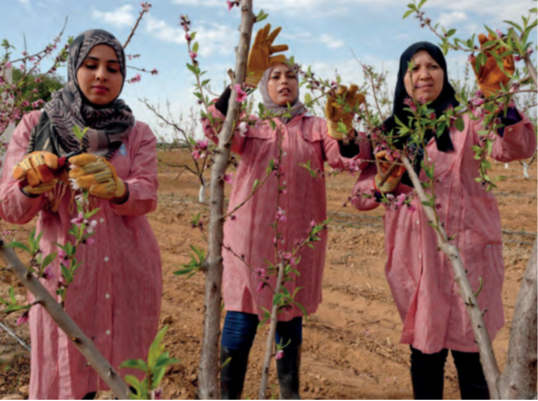
Experts: Dhesigen Naidoo (Water Research Commission), Fredy Camarena (Representative of Gobe Indigenous People and Director of Water and Sanitation), Mme Saiida Zwawi ( La Présidente du GDA Thubrnica), Rio Hada (OHCHR), Louisa Gosling (WaterAid), Jonathan Grabinsky (World Bank), Amanda Loeffen (Human Right 2 Water) as host.
The term ‘Human Rights-Based Approach’ (HRBA) was recognised by Kofi Annan as early as 1997 when he advocated for its implementation across the UN system. This webinar celebrates the first publication that sets out a practical guide for using an HRBA in water and sanitation programmes, incorporating elements of the Human Rights to Water and Sanitation, along with the transversal principles of the HRBA. In this webinar, we aim to review the HRBA in practice using a selection of community-based water infrastructure projects, provided by ILO. The common thread in these cases is the meaningful participation of the local community and the inclusion of women in a technical role. We will explore how these programmes have succeeded to enlist women in roles that are more typically in the male domain and understand the elements of an HRBA that have been integrated into the programme.
Click here to read more about the summary of the event
International Women’s Day – Women, Water and Human Rights
8th March 2021, 15:00h CET – Watch the Webinar
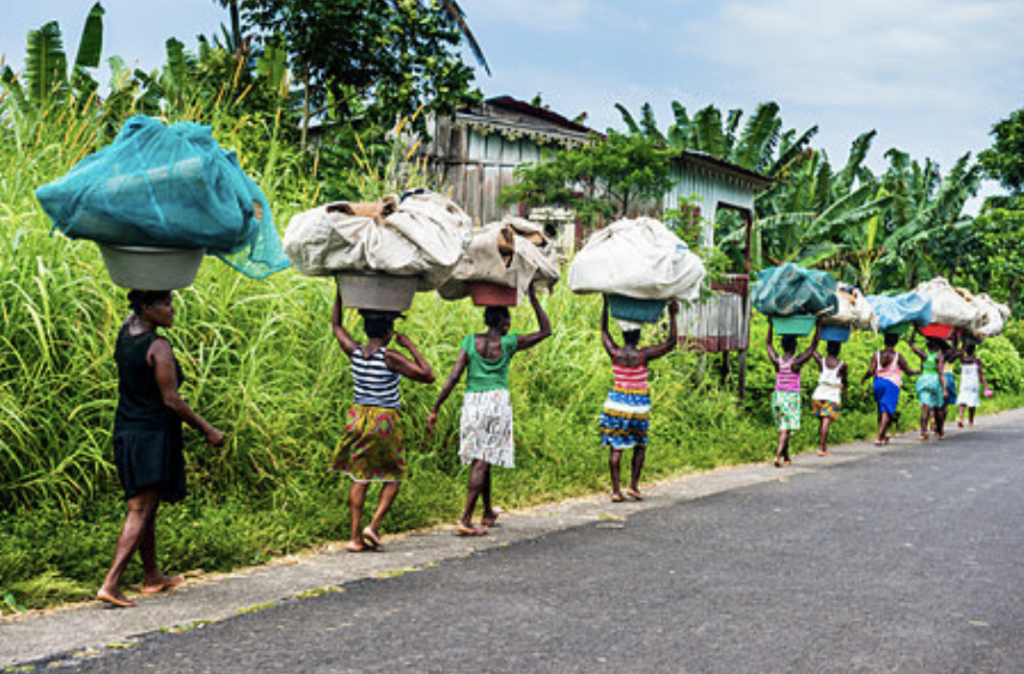
Experts: Raquel Dodge (Attorney General, Brazil), Nchedi Sophia Maphokga-Moripe (South Africa Department of Water and Sanitation), Mekala Krishnan (McKinsey Global Institute), Maria Teresa Gutierrez (International Labour Organisation), Mariet Verhoef-Cohen (Women for Water Partnership), Amanda Loeffen (Human Right 2 Water) as host.
“Choose to Challenge” is the theme of this year’s International Women’s Day. A day to celebrate women’s achievements, but also to challenge stereotypes, fight prejudice, expand perceptions and improve conditions. In the world of water, women play a central role on one hand (for collecting and managing domestic water) and are largely over-looked on the other hand (when dealing with decision-making for water service delivery and infrastructure provision). This webinar brings together inspirational women from around the world to share their experience and stories. The aim is to provide an overview of the benefits of including women in decision-making forums, examples of specific cases where the inclusion of women in water has resulted in solutions that are more sustainable, culturally sensitive, and conscious of the importance of considering women and family needs into planning and design at the start of the projects.
Click here to read more about the summary of the event
NHRI Launch Event: Good Practices of NHRIs in Water Governance
24th February 2021, 11:00h GMT – Watch the Webinar (Available in English and French)
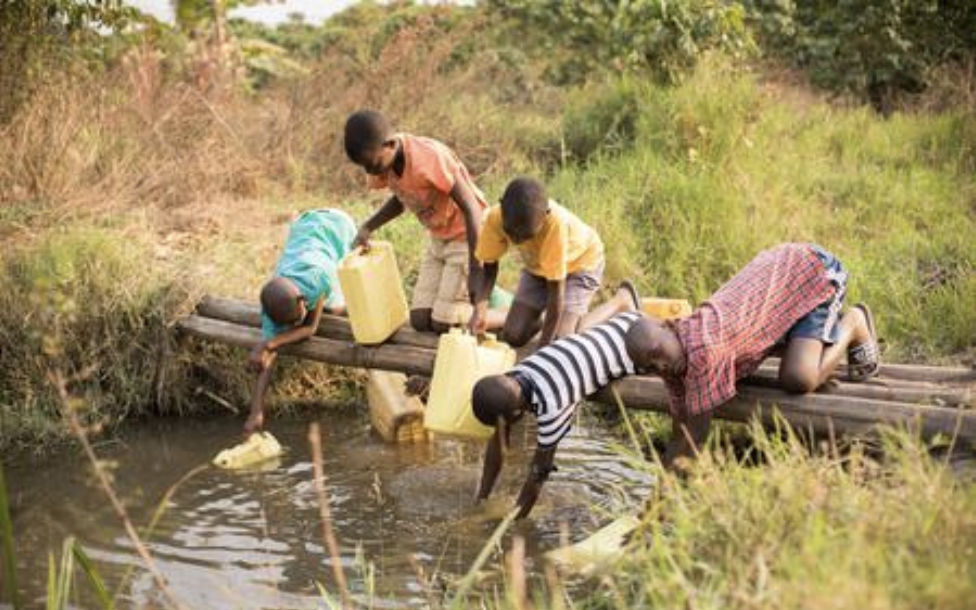
Experts: Amanda Loeffen (Human Right 2 Water), Imanol Aguilera (Human Right 2 Water), Yuri Ramkissoon (South African Human Rights Commission), Yeo Wondio Christelle (National Council for Human Rights, Côte d’Ivoire), Clinton Ezeigwe (People to People International), Ousmane Dambadji (Nigerian Network of Journalists for Education, Water, Hygiene and Sanitation), Al-hassan Adam (End Water Poverty).
Human Right 2 Water and End Water Poverty have highlighted the role that NHRIs can provide in water governance through a new publication which collects good practices from a selection of countries. This compilation selects areas of activity where NHRIs can demonstrably provide value, through promotion and protection of these rights and educational programmes; monitoring access to services and complaints procedures; and by acting as a body that presents violations to government and making recommendations on legislative reform.
We will present some of the case studies that were identified in our good practice’s compilation. Leaders from these NHRIs are invited to share their stories of achieving these outcomes as an inspiration for other NHRIs, and as a source of knowledge for people that are not fully aware of the services that NHRIs can provide. We also include speakers from the same countries that are working with vulnerable people in water and sanitation provision, to provide a local perspective.
Buenas Prácticas de INDH en la Governanza del Agua
24 de Feb , 15:00h GMT – Mira el Webinar (Disponible en Español)
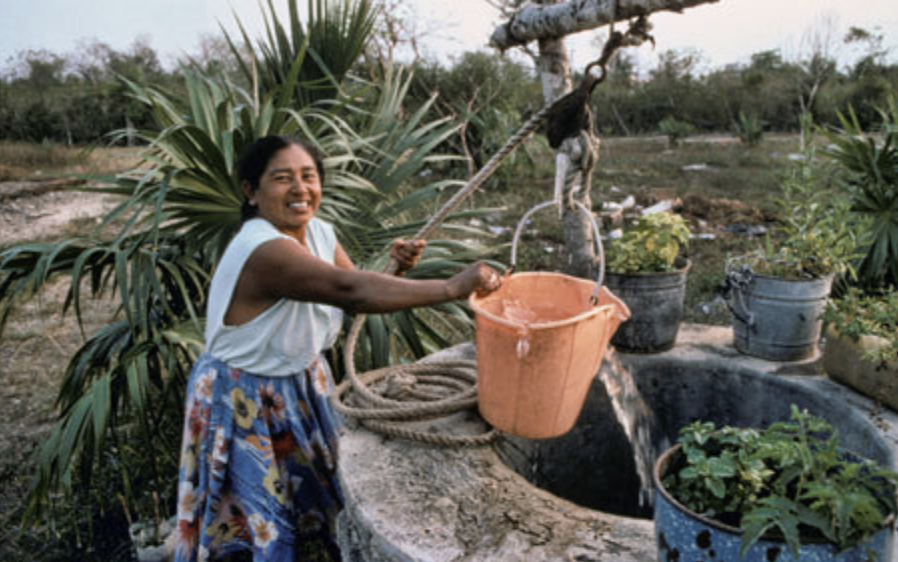
Experts: Géraldine Gené (Human Right 2 Water), Sam Taylor (End Water Poverty), Imanol Aguilera (Human Right 2 Water), Dra. María Elena Lugo (Comisión Nacional de Derechos Humanos de México), Dennis Donaire (ASOMAINCUPACO, Honduras), Zuleth Oriana Munoz (Procuradora de los Derechos Humanos de Guatemala).
Human Right 2 Water y End Water Poverty destacan el rol que las INDH pueden tener en la gobernanza del agua, a través de esta nueva publicación que recolecta buenas prácticas de varios países. Esta recopilación selecciona áreas de actividad en las que las INHD claramente pueden proporcionar valor de forma demostrable tales como, la promoción y protección de estos derechos, programas educativos, monitoreando el acceso a los servicios y el procedimiento de quejas, denunciando lasviolaciones ante el gobierno y haciendo recomendaciones sobre reformas legislativas.
Presentaremos algunos casos de estudio que identificamos. Invitamos a líderes de las INDH a compartir historias de éxito con el fin de inspirar otras organizaciones. Además, como fuente de conocimiento para personas que no son plenamente conscientes los servicios que puede brindar INDH. También, incluimos oradores de los mismos países que trabajan con personas en estado de vulnerabilidad en la provisión de agua y saneamiento, esto con el fin de proporcionar una perspectiva local.
A human rights-based approach for community adaptation to climate change
3rd February 2021, 09:00h CET – Watch the Webinar
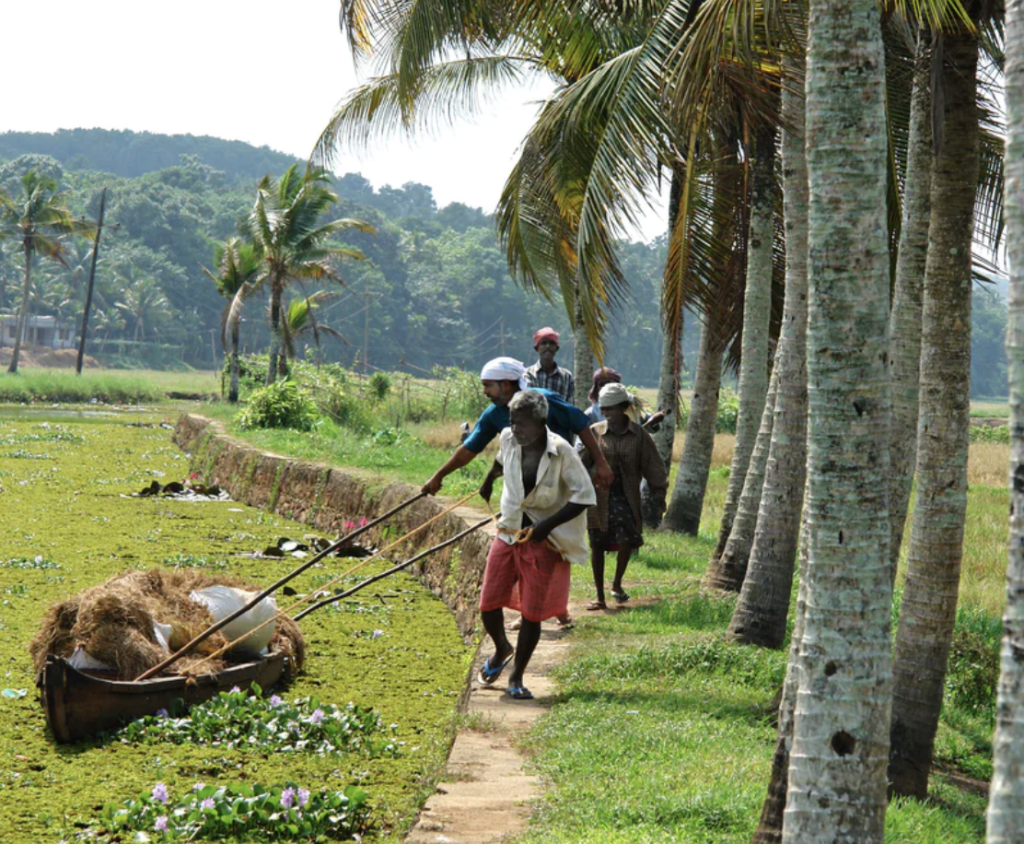
Experts: Pedro Arrojo-Agudo (Special Rapporteur), Roula Majdalani (ESCWA), Johannes Cullman (WMO), Professor Saleemul Huq (ICCCAD and Independent University Bangladesh), Ania Grobicki (Green Climate Fund), Afef Tlili (Minerva Consulting), Dhesigen Naidoo (Human Right 2 Water, WRC and Presidential Climate Change Coordinating Commission), Amanda Loeffen (Human Right 2 Water) as host.
“Climate change affects ecosystems, human societies and economies in a variety of ways, and water is the primary medium through which these impacts are felt”,
United Nations World Water Development Report 2020, Water and Climate Change.
The many competing—and sometimes conflicting—demands on water resources will give rise to questions of equity and justice, such as what would be considered to be a ‘fair’ or ‘balanced’ allocation of water for competing uses. The human rights system offers an important entry point for such questions of justice, and a process for establishing priorities.This webinar examines some of the tools and case studies connected with how to connect local communities with solutions for climate adaptation. It especially explores the importance of integrating the HRBA and encourages more inclusive management of water rights.
How can the human rights to water and sanitation create resilience to pandemics such as COVID-19?
10th December 2020, 15:00h CET – Watch the Webinar
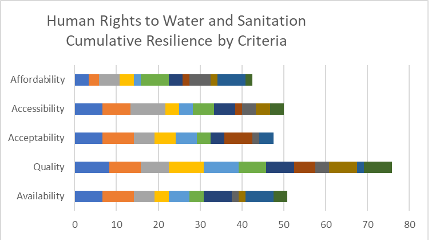
Host: Amanda Loeffen, Chief Executive Officer at Human Right 2 Water
Experts: Professor Sharmila Murthy (Suffolk University Law School), Rio Hada (OHCHR), Imanol Aguilera (Human Right 2 Water), Yamileth Astorga (AyA Costa Rica), Géraldine Gené (Human Right 2 Water), Eng. Robert Gakubia (Kenya Water Services Regulatory Board), Professor Patricia Mbote (University of Nairobi)
On this important day to celebrate Human Rights, this webinar will highlight the link between the human rights to water and sanitation, and our resilience to disease, especially for vulnerable people.
The current global emergency has laid bare some of the weaknesses in our current legal systems, at national and local authority levels, highlighting the need for strengthening of water and sanitation service supplies to strengthen human rights. Services that are barely adequate under normal circumstances, can quickly become a liability when trying to prevent the spread of disease through maintaining hygienic conditions, handwashing, cleanliness, and proper disposal of faecal waste products. The awful truth is that the poor and the vulnerable typically suffer the most, and especially in countries without the ability to react quickly to emergency conditions.
The Business Case for Including Human Rights to Sanitation
10th November 2020, 15:00h CET – Watch the Webinar
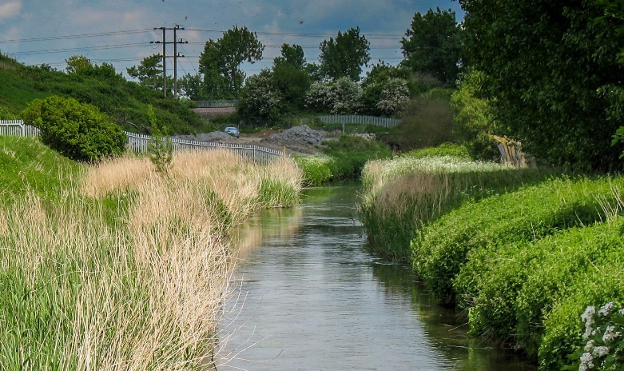
Host: Amanda Loeffen, Chief Executive Officer at Human Right 2 Water
Experts: Alex Knezovich (Toilet Board Coalition), Nazir Pandor (Live Clean Initiatives), Joel Mukisa Makadesh (Joelex Uganda Limited), Francis Daniel Bougaire (African Development Bank), Professor Martha Davis (Northeastern University), Jayant Bhagwan (South African Water Research Commission), Gabriella Casanova (Human Right 2 Water), Doulaye Kone (Bill & Melinda Gates Foundation)
Inclusion of human rights to sanitation in business processes and standards is not often considered as a primary goal for service providers. However, these businesses do have a strong duty to respect and protect people’s human rights, and there is an obvious connection between provision of safely managed services and environmental protection. This webinar invites a selection of experts from the sanitation sector and human rights experts to talk about the need for this recognition, by service providers and government authorities, such that these standards can be integrated into policies and systems for monitoring the realisation of human rights at a local level.
The Importance of Engaging Young People in the Dialogue on Water and Human Rights
7th October 2020, 16:00h CET – Watch the Webinar

Hosts: Imanol Aguilera, Legal Researcher at Human Right 2 Water and Gussie Lloyd, Communications Manager at Human Right 2 Water
Experts: Daniel Cano (Organisation of American States, USA), Antonella Vagliente (Young Water Solutions, Belgium), Muhammad Wasif Bashir Babar (Pakistan Youth Parliament for Water, Pakistan), Nuzhat Bashir (Youth Leader and Social Enterpriser in WASH, Pakistan), Ashton Busani Mpofu (South African Young Water Professionals, South Africa), Sheila Ruyondo (Young Water Solutions, Uganda), Cuauhtémoc Osorno Córdova (World Youth Parliament for Water, Mexico), Abishek Narayan (Swiss Water Partnership, Switzerland)
This webinar will reflect on the importance of engaging young people in this dialogue on water and human rights. Based on the experiences of our panellists, we will be exploring the ways in which the involvement of young people in water related projects has been beneficial in promoting and protecting human rights. We will be presenting a series of case studies that will also help to gain an understanding of the main challenges faced by young people as they strive to play a role in the decision-making processes.
A declaration reflecting our commitment to involve the youth in water governance and to respond to the most pressing challenges that we are facing today will be included as part of the webinar. This declaration will act as a starting point for future endeavours of the community of young people brought together by this event.
The Importance of a Human Rights Based Approach to IWRM
2nd September 2020, 14:00h CET – Watch the Webinar
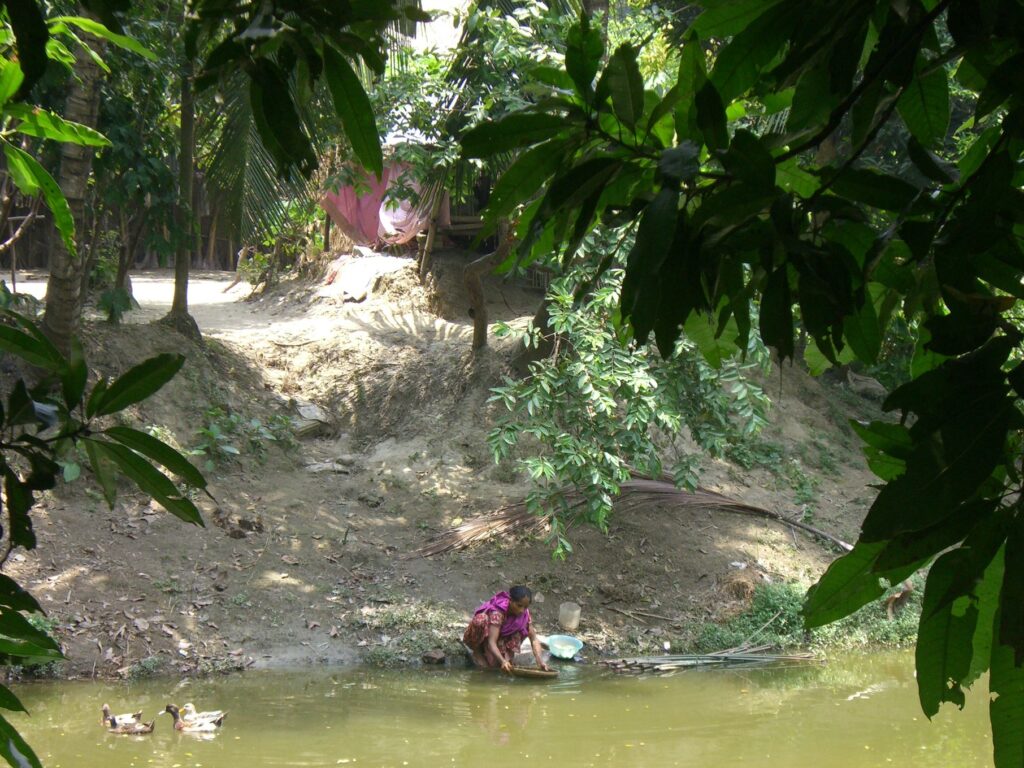
Hosts: Max Campos, Chief of IWRM at OAS and Board Member at Human Right 2 Water, and Amanda Loeffen, Chief Executive at Human Right 2 Water
Experts: Jenny Grönwall (SIWI), Dhesigen Naidoo (WRC), Diana Suhardiman (IWMI), Themba Gumbo (CapNet), Fabiola Tábora (GWP), Géraldine Gené (Human Right 2 Water)
Integrated Water Resources Management (IWRM) is a process which promotes the coordinated development and management of water, land, and related resources in order to maximise economic and social welfare in an equitable manner without compromising the sustainability of vital ecosystems and the environment. The Human Rights Based Approach (HRBA) provides a process and a legal methodology for inclusion of all people, for non-discrimination, participation, sharing of data, and accountability. By taking into account the needs and rights of all vulnerable groups, and including them in the decision-making process, a sustainable solution is more likely to be supported.
This webinar examines some of the tools and case studies behind this approach, pulling on experts in human rights, water governance and IWRM from different parts of the world. We hope to share some of the thinking behind the HRBA and encourage more inclusive management of water rights.
People-first PPPs and a Human Rights-Based Approach for SDG 6
5th August 2020, 13:00h CET – Watch the Webinar
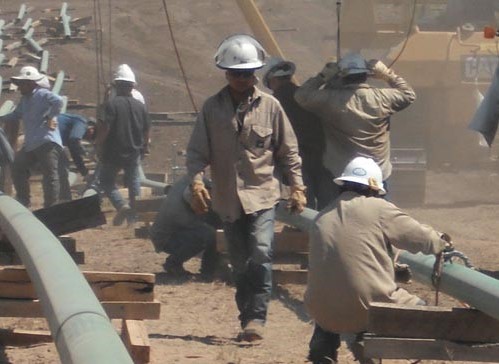
Introduction: Anand Chiplunkar, Board Member, Human Right 2 Water
Experts: Olcay Ünver (Vice-Chair, UN-Water), Klas Moldéus (UN-Water), Patricia Lopez (Sr. Infrastructure Finance Specialist, World Bank), Geoffrey Hamilton (Chief of International PPP Centre of Excellence, UNECE), Irina Tsay (Regional Project Manager, SOS Children’s Villages), Neil Dhot (Executive Director, AQUAFED), Amanda Loeffen (Chief Executive, Human Right 2 Water)
In the race to realise the 2030 Agenda, the need for Public-Private Partnerships is recognised as essential to realise SDG 6, and yet people are still being left behind. The principles of a Human Rights Based Approach (HRBA) are not automatically included in the design and implementation stages of new projects.
This webinar examines the interlink between People-first Public-Private Partnerships (Pf-PPP) and the need for a Human Rights-Based Approach (HRBA).
10 Year Celebration of the Human Rights to Water and Sanitation, and the Importance of Including it in National Law and Policy
1st July 2020, 15:00 CET – Watch the Webinar
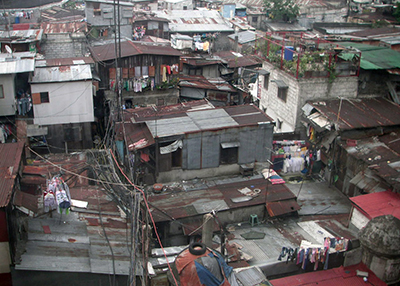
Experts: Blanca Jimenez (CONAGUA), Léo Heller (Special Rapporteur on human rights to safe drinking water and sanitation), Sergio Campos (IDB), Maureen Mwadime (Kenya KHRC), Callum Clench (IWRA), Amanda Loeffen (CEO, HR2W) as moderator
Recognition in law and policy is a crucial step towards the national realisation of safe and sustainable access to water and sanitation to all. Countries such as Mexico, are taking the lead by integrating these rights further into national water plans and policies such that there is a real change in access. Kenya also has developed a framework for the Human Rights to water and sanitation and is looking for ways to monitor the data more efficiently.
Emergency responses linking Corona pandemics (COVID 19) and human rights to water and sanitation
3rd June 2020, 14:00 CET – Watch the Webinar

Introduction : Dhesigen Naidoo, President of Human Right 2 Water
Experts: Sharmila Murthy (HRWS expert, Board Member HR2Water), Rio Hada (OHCHR), Bruce Gordon (WHO), Raya Stephan (international water law), Enrico Muratore (WSSCC, human rights), Amanda Loeffen (CEO, HR2W) as moderator
Implications of COVID 19 are terrible for everyone, but especially difficult for the poorer sections of society that might not have access to clean running water for drinking and hand washing and facilities for general hygiene. This webinar brings together a selection of experts from the Board of Human Right 2 Water with leaders from the human rights sector to give their opinion and to discuss opportunities for emergency response solutions.
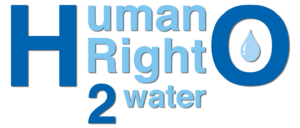
A world where all people realise the human rights to water and sanitation
[1] https://data.unicef.org/topic/water-and-sanitation/wash-in-schools/

